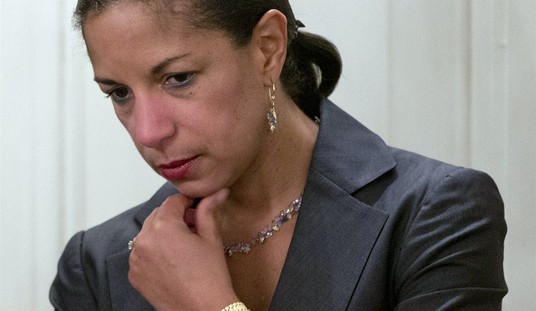Shilling for minimum-wage increases is one of the laziest moves a desperate politician can make. President Obama took it to a new level in his State of the Union address, investing just enough effort to sharpen an embarrassing pander into another weapon in his endless class warfare:
In the year since I asked this Congress to raise the minimum wage, five states have passed laws to raise theirs. Many businesses have done it on their own. Nick Chute is here tonight with his boss, John Soranno. John’s an owner of Punch Pizza in Minneapolis, and Nick helps make the dough. Only now he makes more of it: John just gave his employees a raise, to ten bucks an hour – a decision that eased their financial stress and boosted their morale.
Tonight, I ask more of America’s business leaders to follow John’s lead and do what you can to raise your employees’ wages. To every mayor, governor, and state legislator in America, I say, you don’t have to wait for Congress to act; Americans will support you if you take this on. And as a chief executive, I intend to lead by example. Profitable corporations like Costco see higher wages as the smart way to boost productivity and reduce turnover. We should too. In the coming weeks, I will issue an Executive Order requiring federal contractors to pay their federally-funded employees a fair wage of at least $10.10 an hour – because if you cook our troops’ meals or wash their dishes, you shouldn’t have to live in poverty.
Of course, to reach millions more, Congress needs to get on board. Today, the federal minimum wage is worth about twenty percent less than it was when Ronald Reagan first stood here. Tom Harkin and George Miller have a bill to fix that by lifting the minimum wage to $10.10. This will help families. It will give businesses customers with more money to spend. It doesn’t involve any new bureaucratic program. So join the rest of the country. Say yes. Give America a raise.
“Give ’em a raise!” Obama shouted into the ensuing applause. I can imagine the meeting he must have held with his speechwriters:
POTUS: I need a couple of points added to my approval rating, fast. What’s the biggest, easiest pander I could make, with the least danger of blowback?
SPEECHWRITER: Tell everyone in America you think they deserve a raise. Absolutely no need to follow through, and if it doesn’t happen, they’ll blame the evil greedy business owners they work for.
POTUS: Sweet! I was thinking about promising a chicken in every pot, but Ted Cruz would probably add up the cost of the chickens, throw in some delivery overhead, and ask where I was going to get the money from. Also, the animal-rights people would go nuts.
Thus we have the man who’s never made a payroll telling us all how to manage our employees; the man who couldn’t manage a lemonade stand telling us that radically increased cost of labor is nothing compared to the warm feeling everyone gets from a nice fat pay raise. Barack Obama is very good at telling everyone else what they must do, and spending other people’s money. Just think how happy we’d all be, if the minimum wage got kicked up to $50 an hour! And don’t you dare think about cutting hours or raising the price of your products to absorb those costs, American businessmen, or the Class Warrior In Chief will be all over you.
When did it become the business of the American president – chief executive of a limited republic, empowered by the consent of the free people it governs – to lecture private-sector enterprises on how much the should be paying their employees, and elsewhere in his speech, who they should be hiring? The implication is that those greedy fat cats could give you a raise any time they wanted to; they just need a good kick in the pants from the man who dumped ObamaCare on you to get them writing those checks.
I’ve heard the President’s new political strategy described as “labor versus capitalism,” which is another way of saying “divisive warfare between employees and the people who sign their paychecks.” The odds are supposed to be pretty long against capitalism winning that conflict, because labor will always vote its own self-interest, or at least succumb to appeals based upon its resentments. Who’s going to get mad at the politician who says they deserve a raise?
“Labor vs. capitalism” is not a bad way to describe what we’re talking about here. Capitalism is the private ownership of capital, which includes the ability to invest that capital as the owner sees fit, not the way a politician orders them to. All this tinkering with the minimum wage has absolutely nothing to do with protecting vulnerable workers from brutal exploitation, any more than the bloated food stamp program is about rescuing hungry people from starvation. It’s all about chipping away at the private control of capital, which most certainly includes human capital.
I have always thought a healthy work ethic involved seeing yourself as the owner and salesman of your own labor. Your time is a valuable commodity. Employers are your customers. Good customer service goes a long way towards a successful business relationship. So does a healthy competitive spirit.
But Obama’s vision of a government-regulated economy accepts the collectivist premise that all capital, including your labor, is the rightful property of the State, which is the prophet and executor of the popular will. In a hardcore collectivist system, the State would guarantee everyone an income, while assigning labor according to the instruction of central planners. It’s really not hard to find people who are more or less serious about imposing such a system on the United States. Meanwhile, the mainstream Left thinks individuals should be allowed to retain some control over their labor, some ability to set the terms of its sale.
Obama’s “Give ’em a raise!” rallying cry fits neatly into that model. If the minimum wage is raised, you will no longer be allowed to compete by offering your labor for less than $10 per hour, or whatever it rises to. Most people think of the minimum wage as a restriction against business, but it’s also a restriction on employees, just as surely as price controls affect the sellers of any other commodity. The unskilled or inexperienced job-seeker is stripped of the ability to persuade employers to take a chance on him at a lower entry-level wage, confident that he’ll soon prove himself worth more.
That probably sounds like an abstract freedom to lose – yeah, right, like I’m suffering some big loss of liberty because nobody can pay me less than $10 an hour any more – but it’s going to feel pretty freaking real to the people who lose their jobs, cannot find jobs, or find their hours cut because of a minimum wage increase. Of course, they’ll be bamboozled into thinking the wage controls had nothing to do with their misfortune. They’ll be told to focus their anger and desperation on the people who won’t hire them, not the politicians who made it impractical to hire them.
Let me be brutally honest here. Look around your office, the next time you go to work. Do you think everyone you see really deserves the same raise as you? Don’t you think that decision should be made locally, by managers familiar with your work, and also familiar with the performance of the guy who shows up late every day, or the one who horses around on his smartphone instead of getting stuff done, or the one who won’t volunteer for overtime the way you do?
If you’re unemployed, do you think everyone else at the job fair or benefits window is worth the same wages as you are? You might answer, “I don’t know, because I haven’t worked with those people.” Fair enough. But why should a politician a thousand miles away, who has never worked with you or anyone else in your industry, make those decisions? Why should you be so willing to surrender your chance to impress an employer and get a profitable career under way, as a smaller pool of jobs with higher mandatory wages is parceled out cautiously to a dwindling workforce of people with the best resumes?
The most destructive aspect of class warfare isn’t raw envy of the rich. It’s the way these divisive politics lead workers to regard capitalists as a separate class, which they regard with deep suspicion. In truth, we are all capitalists. You made an investment in developing your capital when you went to school. You sell it every time you have a job interview. You really don’t want politicians micro-managing those transactions.












Join the conversation as a VIP Member